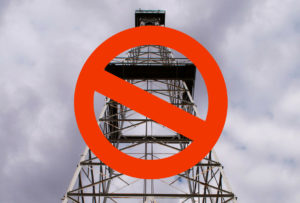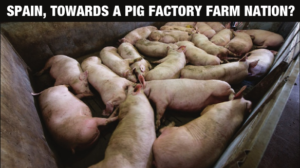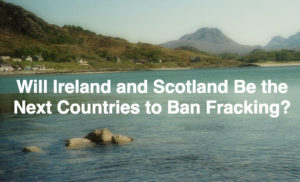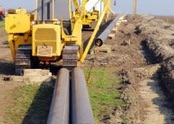 In many ways, hydraulic fracturing (fracking) looms as the environmental issue of our time. It touches every aspect of our lives—the water we drink, the air we breathe, and the health of our communities—as it ominously threatens our global climate. It pits the largest corporate giants—international energy and financial corporations—against people and the environment in a long-term struggle for survival.
In many ways, hydraulic fracturing (fracking) looms as the environmental issue of our time. It touches every aspect of our lives—the water we drink, the air we breathe, and the health of our communities—as it ominously threatens our global climate. It pits the largest corporate giants—international energy and financial corporations—against people and the environment in a long-term struggle for survival.
Fracking has, through the construction of a network of thousands of wells, a significant impact on communities and culturally or environmentally sensitive zones in England, Scotland, Ireland, Northern Ireland and Wales, among other areas in Europe. Ireland, Northern Ireland and Scotland have already recognized the need to act against this corporate assault and have prepared the first steps towards fracking bans. Sadly, up until now, the UK government has done little to confront the devastating environmental and public health impacts of fracking.
In a historic vote at the beginning of this year, Ireland opted in favour of a law that will make the green island the world’s first country to fully divest from fossil fuels. On Europe Day, 9 May 2017, the committee on Communications, Climate Action and Environment passed the bill banning oil and gas extraction through fracking in Ireland, paving the way for a final vote later this year. The Scottish Government is currently holding a public consultation until the end of May and hopes are that the overwhelming evidence of the negative impacts caused by fracking will also finally lead to a ban in Scotland. People can still support the “Take Action to Ban Fracking Now!” campaign by FoE Scotland.




 I recently started an internship of six months at Food & Water Europe and I am the newest addition to the small international Brussels-based team. During my first week I got to know the team a little better, I was given a tour around the ecologically renovated office building Mundo-B (which we share with 60 other NGOs) and I was introduced to the many issues Food & Water Europe is working and campaigning on. There was (and still is) a lot of information to take in, not to mention the many acronyms involved: PCI’s, RES, CEF, SGC, TAP, ECI, etc.… But I can only be very grateful for the warm welcome I’ve received in this small Spanish-Austrian-German working family.
I recently started an internship of six months at Food & Water Europe and I am the newest addition to the small international Brussels-based team. During my first week I got to know the team a little better, I was given a tour around the ecologically renovated office building Mundo-B (which we share with 60 other NGOs) and I was introduced to the many issues Food & Water Europe is working and campaigning on. There was (and still is) a lot of information to take in, not to mention the many acronyms involved: PCI’s, RES, CEF, SGC, TAP, ECI, etc.… But I can only be very grateful for the warm welcome I’ve received in this small Spanish-Austrian-German working family.

 On 17 February, the EU Commission
On 17 February, the EU Commission